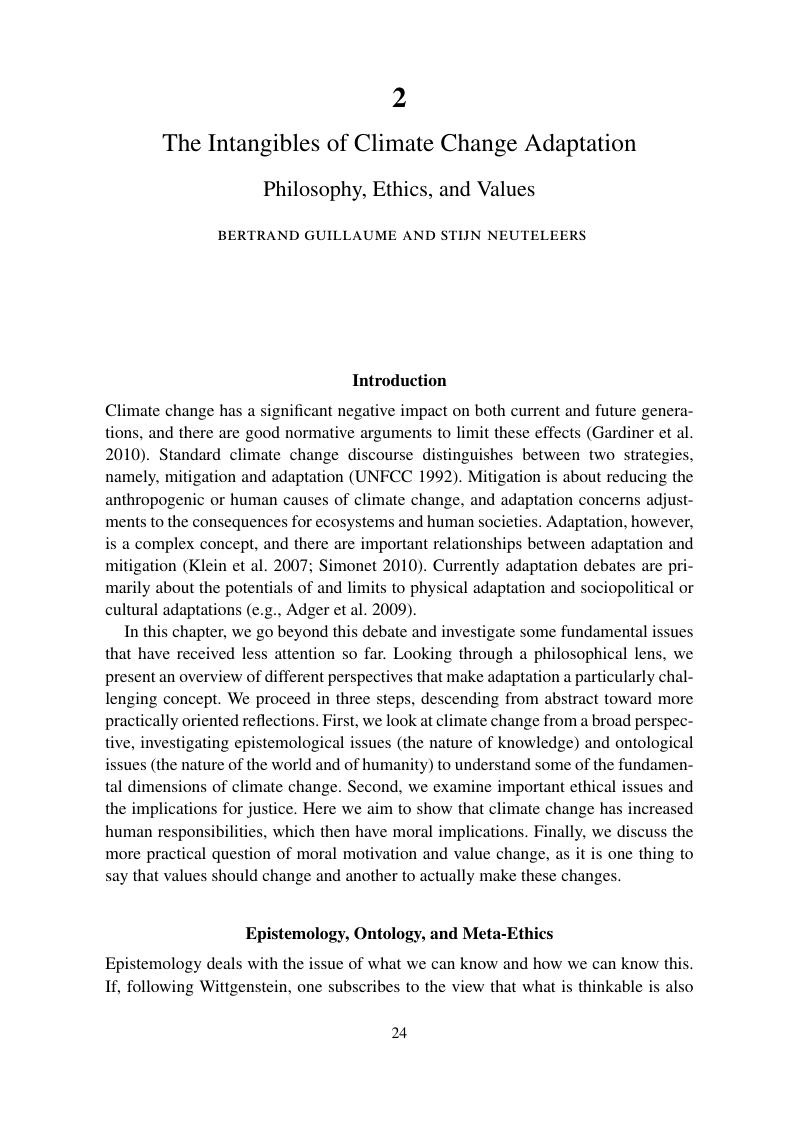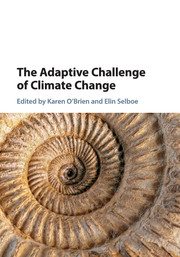Book contents
- The Adaptive Challenge of Climate Change
- The Adaptive Challenge of Climate Change
- Copyright page
- Contents
- Tables
- Figures
- Contributors
- Preface
- 1 Climate Change as an Adaptive Challenge
- 2 The Intangibles of Climate Change Adaptation
- 3 UrbanClimate Change Policy Transitions
- 4 Planningfor Climate Change Adaptation in Urban Areas
- 5 The Challenge of Governing Adaptation in Australia
- 6 Emerging Equity and Justice Concerns for Climate Change Adaptation
- 7 Transforming toward or away from Sustainability?
- 8 Opportunistic Adaptation
- 9 Place Attachment, Identity, and Adaptation
- 10 Values and Traditional Practices in Adaptation to Climate Change
- 11 ExploringVulnerability and Adaptation Narratives among Fishers, Farmers, and Municipal Planners in Northern Norway
- 12 Changes in Organizational Culture, Changes in Adaptive Capacity?
- 13 From Informant to Actor to Leader
- 14 Participation and Learning for Climate Change Adaptation
- 15 Integral GIS
- 16 There Must Be More
- 17 Social Transformation
- Index
- References
2 - The Intangibles of Climate Change Adaptation
Philosophy, Ethics, and Values
Published online by Cambridge University Press: 05 August 2015
- The Adaptive Challenge of Climate Change
- The Adaptive Challenge of Climate Change
- Copyright page
- Contents
- Tables
- Figures
- Contributors
- Preface
- 1 Climate Change as an Adaptive Challenge
- 2 The Intangibles of Climate Change Adaptation
- 3 UrbanClimate Change Policy Transitions
- 4 Planningfor Climate Change Adaptation in Urban Areas
- 5 The Challenge of Governing Adaptation in Australia
- 6 Emerging Equity and Justice Concerns for Climate Change Adaptation
- 7 Transforming toward or away from Sustainability?
- 8 Opportunistic Adaptation
- 9 Place Attachment, Identity, and Adaptation
- 10 Values and Traditional Practices in Adaptation to Climate Change
- 11 ExploringVulnerability and Adaptation Narratives among Fishers, Farmers, and Municipal Planners in Northern Norway
- 12 Changes in Organizational Culture, Changes in Adaptive Capacity?
- 13 From Informant to Actor to Leader
- 14 Participation and Learning for Climate Change Adaptation
- 15 Integral GIS
- 16 There Must Be More
- 17 Social Transformation
- Index
- References
Summary

- Type
- Chapter
- Information
- The Adaptive Challenge of Climate Change , pp. 24 - 40Publisher: Cambridge University PressPrint publication year: 2015
References
- 1
- Cited by



